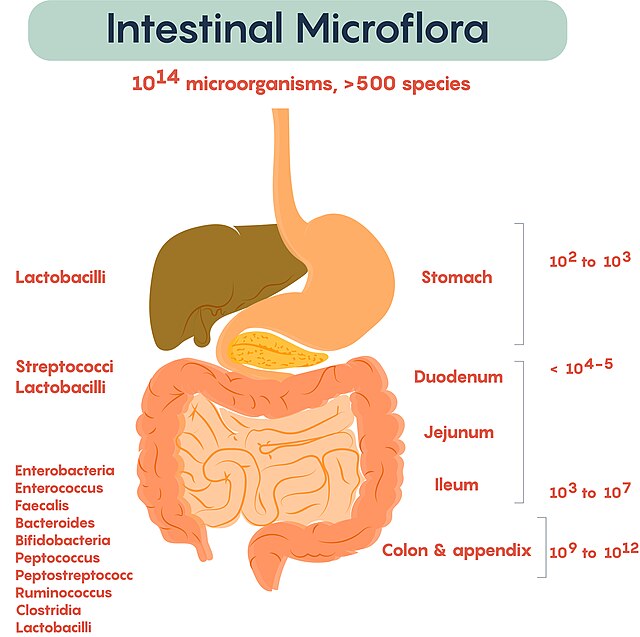Probiotics are live microorganisms promoted with claims that they provide health benefits when consumed, generally by improving or restoring the gut microbiota. Probiotics are considered generally safe to consume, but may cause bacteria-host interactions and unwanted side effects in rare cases. There is some evidence that probiotics are beneficial for some conditions, but there is little evidence for many of the health benefits claimed for them.
A bottle of Yakult, a probiotic drink containing Lactobacillus paracasei
Élie Metchnikoff first suggested the possibility of colonizing the gut with beneficial bacteria in the early 20th century.
Gut microbiota, gut microbiome, or gut flora are the microorganisms, including bacteria, archaea, fungi, and viruses, that live in the digestive tracts of animals. The gastrointestinal metagenome is the aggregate of all the genomes of the gut microbiota. The gut is the main location of the human microbiome. The gut microbiota has broad impacts, including effects on colonization, resistance to pathogens, maintaining the intestinal epithelium, metabolizing dietary and pharmaceutical compounds, controlling immune function, and even behavior through the gut–brain axis.
Escherichia coli, one of the many species of bacteria present in the human gut
Composition and distribution of gut microbiota in human body
Candida albicans, a dimorphic fungus that grows as a yeast in the gut
Illustration showing the developmental colonization of gut microbiota






